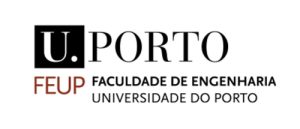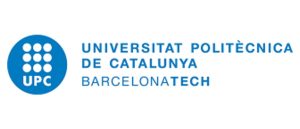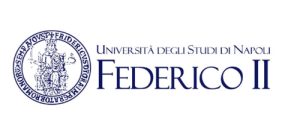Blended Intensive Programmes (BIPs)
BIP on Circular Economy 2023

Why this BIP
The education on circular economy is limited, with high development needs, particularly in higher education. In the engineering and science fields, transversal training programs are consequently essential to level knowledge and to promote interdisciplinary actions, of high relevance to achieve the goals of this economic model, also contributing to the 2030 agenda for sustainable development adopted by the United Nations.
This blended intensive program integrates the realities of different countries, namely of Portugal, Spain and Italy, with specialists in the engineering and sustainability fields to promote collaborative learning through innovative pedagogical approaches in a topic of high relevance, contributing to the integration of this field in different study cycles.
Places available
Min.15 Max.40
Who can participate
This training is aimed at 2nd and 3rd cycle students of engineering, technology or science degrees who wish to complement their knowledge in the area of circular economy through alternative pedagogical methodologies that combine distance and face-to-face teaching activities and a mobility period.
In case of available places, those might be attributed to professional candidates (having a Bachelor and/or an MSc Degree in engineering, technology or science).
Fees
2nd and 3rd cycle students of Science, Technology and Engineering – partner HEIs: no fee
2nd and 3rd cycle students of Science, Technology and Engineering from other HEIs: 180 €
Professionals in the areas of Science, Technology and Engineering with a Bachelor’s or Integrated Master’s degree: 180 €
Fees include all lunches during the face-to-face week (11/09 – 15/09)
Objectives
The BIP on Circular Economy aims to promote the collaborative learning on circular economy through innovative and practical pedagogical approaches.
The teaching and pedagogical program will allow the student to:
- Understand the concept of circular economy, main principles, actions and models;
- Analyze the current linear models, based on practical cases, and review them in the light of the circular economy;
- Identify opportunities for improvement in current processes and products;
- Develop and influence new relations of production, distribution and consumption;
- Develop transversal competences, such as problem solving, critical thinking, creativity and leadership through interdisciplinary group work.
Duration and organisation
The curricular unit includes 81 total hours, where 26 contact hours are distributed by one week (16h) of presential activities, including field visits, talks and group work and 10h of virtual sessions, including the introductory session, talks/seminars with experts, presentation and pre-analysis of the case studies and final presentations of the assignments.
All activities start in September and are expected to occur between the 4th of September and the 13th of October at the latest.
04/09 – 08/09 – virtual component
11/09 – 15/09 – physical component in Porto (Planning)
18/09 – 13/10 – virtual component (specific schedule to be confirmed)
The BIP will last a maximum of 6 weeks.
Part 1 of the curricular unit is the Conceptual Framework. The activities will comprise online classes with dynamic activities, including gamification(quiz) and talks by experts, this will allow the introduction of the curricular unit and of the concept of circular economy and its relevance in key areas.
Part 2 – Circular Economy In Practice will provide guidelines concerning the content of the real case studies and the main objectives and the mobility week, which includes field visits, face to face sessions (presential talks), group work and a brainstorming session aiming the analysis of real case studies. Four real case studies in Portugal will be selected in collaboration with national entities. The students will identify the critical success factors and barriers to the contribution in circular economy strategies in the mentioned case studies.
The curricular unit will end in Part 3 – Consolidation&Final Presentations, where students will perform, in group, an oral online presentation of the case study.
The oral presentation is mandatory.
Applications
Applications are open between 24th of April and 23rd of June 2023 and should be submitted using this form.
Candidates should submit:
- Proof of previous/current studies;
- CV
- Motivation letter
Seriation
The components considered in the selection are:
A1 – Relevance of the degree and professional experience related to circular economy (which might cover sustainability, energy, water, soils and waste fields);
A2 – Curriculum vitae,
A3 – Motivation letter.
Priority is given to students coming from degrees related to the field of Environmental Engineering, Environmental Science and Sustainability.
The calculation of the seriation score is done considering the following scores: A1 – up to 5 points; A2 – up to 10 points; A3 – up to 5 points.
TIE-BREAKER CRITERIA
- Date of application
- Interview
Certification
The workload of this course corresponds to 3 ECTS. The integration of the course in the student study plan or supplement of diploma will depend upon each institution.
Financing
Students coming from European institutions should check with the International Offices of their higher education institutions (of origin) the possibility of applying to an Erasmus+ scholarship.
The project has received funding from the European Union under the Grant Agreement no. 2021-I-PT01-KA131-HED-000004456
![]()
Professors organizing this BIP

Joana Maia Dias
FEUP, UPorto,
Portugal

Jordi Segalàs
Universitat Politècnica de Catalunya-Barcelona Tech,
Spain
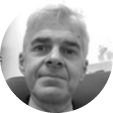
Massimiliano Fabbricino
University of Naples Federico II, Italy
Other faculty members involved
Maria Cristina da Costa Vila (U.Porto/FEUP)
Maria de Lurdes da Costa Lopes (U.Porto/FEUP)
Laura Clarizia (UNINA)
Where to stay in Porto
Inside the iconic São Bento train station, this is a sustainable hostel. Hands together with environmental awareness, we value the details, the comfort, and the social experience to provide an unforgettable stay to all our Passengers. The building’s beauty and scale have led to a distinctive Hostel concept, with various well-thought rooms and exceptional common areas.
Mixed Dormitory (10 beds) – 148.00€/person (4 nights with breakfast)* Reference pricing
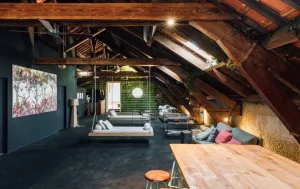
Situated within a 4-minute walk of Paris Galleries Street, Selina Porto in Porto is centrally located in Porto. A wide range of popular restaurants, bars, and cafés is available within a short walk. The property features an in-house restaurant as well. Speaking English and Portuguese at the 24-hour front desk, staff are always at hand to help.
Bed in 8-Bed Dormitory Room – 122€/person (4 nights) | Bed in 4-Bed Dormitory Room – 144€/person (4 nights) * Reference pricing
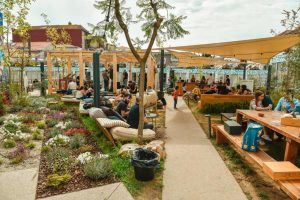
So Cool Hostel Porto is located 5 minutes (walking) from the Rotunda da Boavista (near Casa da Música), 10 minutes (walking) from the old town, where you can find the most important cultural focus with art galleries, theaters, restaurants, bars, and nightclubs.
Dorms – from € 18,00 up to € 22,00 (night/person) | Rooms – from € 22,00 up to € 25,00 (night/per person) * Reference pricing
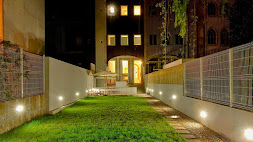
HI PORTO – POUSADA DE JUVENTUDE
The Youth Hostel of Porto is a modern building with panoramic views of the Douro estuary and Vila Nova de Gaia.
Dormitory Room with 4 Beds – 116€/person (4 nights) | Twin Room w/WC – 277,20€/room (4 nights) | Apartment w/Kitchnett 4 people – 422.40€/room (4 nights) * Reference pricing
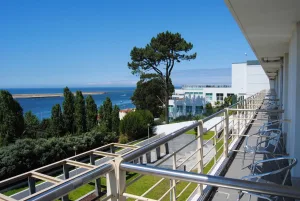
Blended Intensive Programmes (BIPs)
BIP on Circular Economy

Why this BIP
The education on circular economy is limited, with high development needs, particularly in higher education. In the engineering and science fields, transversal training programs are consequently essential to level knowledge and to promote interdisciplinary actions, of high relevance to achieve the goals of this economic model, also contributing to the 2030 agenda for sustainable development adopted by the United Nations.
This blended intensive program integrates the realities of different countries, namely of Portugal, Spain and Italy, with specialists in the engineering and sustainability fields to promote collaborative learning through innovative pedagogical approaches in a topic of high relevance, contributing to the integration of this field in different study cycles.
Places available
Min.15 Max.40
Who can participate
This training is aimed at 2nd and 3rd cycle students of engineering, technology or science degrees who wish to complement their knowledge in the area of circular economy through alternative pedagogical methodologies that combine distance and face-to-face teaching activities and a mobility period.
In case of available places, those might be attributed to professional candidates (having a Bachelor and/or an MSc Degree in engineering, technology or science).
Fees
2nd and 3rd cycle students of Science, Technology and Engineering – partner HEIs: no fee
2nd and 3rd cycle students of Science, Technology and Engineering from other HEIs: 180 €
Professionals in the areas of Science, Technology and Engineering with a Bachelor’s or Integrated Master’s degree: 180 €
Fees include all lunches during the face-to-face week (11/09 – 15/09)
Objectives
The BIP on Circular Economy aims to promote the collaborative learning on circular economy through innovative and practical pedagogical approaches.
The teaching and pedagogical program will allow the student to:
- Understand the concept of circular economy, main principles, actions and models;
- Analyze the current linear models, based on practical cases, and review them in the light of the circular economy;
- Identify opportunities for improvement in current processes and products;
- Develop and influence new relations of production, distribution and consumption;
- Develop transversal competences, such as problem solving, critical thinking, creativity and leadership through interdisciplinary group work.
Duration and organisation
The curricular unit includes 81 total hours, where 26 contact hours are distributed by one week (16 h) of presential activities, including field visits, talks and group work and 10 h of virtual sessions, including the introductory session, talks/seminars with experts, presentation and pre-analysis of the case studies and final presentations of the assignments.
June (3 weeks) – virtual component
July (1 week) – physical component in Porto
July (2 weeks) – virtual component
The BIP will last for a total of 6 weeks. The first 3 weeks are online sessions, which correspond to Part 1 of the curricular unit – Conceptual Framework. The activities will comprise online classes with dynamic activities, including gamification(quiz) and talks by experts, this will allow the introduction of the curricular unit and of the concept of circular economy and its relevance in key areas.
Part 2 – Circular Economy In Practice – is divided in one virtual session (2h), starting in Part 1, prior to one mobility week to provide guidelines concerning the content of the real case studies and the main objectives, followed by one mobility week (16h), which includes field visits, face to face sessions (presential talks), group work and a brainstorming session aiming the analysis of real case studies. Four real case studies in Portugal will be selected in collaboration with national entities. The students will identify the critical success factors and barriers to the contribution in circular economy strategies in the mentioned case studies.
The curricular unit will end after 2 weeks, in Part 3 – Consolidation&Final Presentations, where students will perform, in group, an oral online presentation of the case study.
The oral presentation is mandatory.
Applications
Applications are open between 24th of April and 14th of May 2023 and should be submitted using this form.
Candidates should submit:
- Proof of previous/current studies;
- CV
- Motivation letter
Seriation
The components considered in the selection are:
A1 – Relevance of the degree and professional experience related to circular economy (which might cover sustainability, energy, water, soils and waste fields);
A2 – Curriculum vitae,
A3 – Motivation letter.
Priority is given to students coming from degrees related to the field of Environmental Engineering, Environmental Science and Sustainability.
The calculation of the seriation score is done considering the following scores: A1 – up to 5 points; A2 – up to 10 points; A3 – up to 5 points.
TIE-BREAKER CRITERIA
- Date of application
- Interview
Certification
The workload of this course corresponds to 3 ECTS. The integration of the course in the student study plan or supplement of diploma will depend upon each institution.
Financing
Students coming from European institutions should check with the International Offices of their higher education institutions (of origin) the possibility of applying to an Erasmus+ scholarship.
Professors organizing this BIP

Joana Maia Dias
FEUP, UPorto,
Portugal

Jordi Segalàs
Universitat Politècnica de Catalunya-Barcelona Tech,
Spain

Massimiliano Fabbricino
University of Naples Federico II, Italy
Other faculty members involved
Maria Cristina da Costa Vila (U.Porto/FEUP)
Maria de Lurdes da Costa Lopes (U.Porto/FEUP)
Laura Clarizia (UNINA)
Where to stay in Porto
Inside the iconic São Bento train station, this is a sustainable hostel. Hands together with environmental awareness, we value the details, the comfort, and the social experience to provide an unforgettable stay to all our Passengers. The building’s beauty and scale have led to a distinctive Hostel concept, with various well-thought rooms and exceptional common areas.
Mixed Dormitory (10 beds) – 148.00€/person (4 nights with breakfast)* Reference pricing

Situated within a 4-minute walk of Paris Galleries Street, Selina Porto in Porto is centrally located in Porto. A wide range of popular restaurants, bars, and cafés is available within a short walk. The property features an in-house restaurant as well. Speaking English and Portuguese at the 24-hour front desk, staff are always at hand to help.
Bed in 8-Bed Dormitory Room – 122€/person (4 nights) | Bed in 4-Bed Dormitory Room – 144€/person (4 nights) * Reference pricing

So Cool Hostel Porto is located 5 minutes (walking) from the Rotunda da Boavista (near Casa da Música), 10 minutes (walking) from the old town, where you can find the most important cultural focus with art galleries, theaters, restaurants, bars, and nightclubs.
Dorms – from € 18,00 up to € 22,00 (night/person) | Rooms – from € 22,00 up to € 25,00 (night/per person) * Reference pricing

HI PORTO – POUSADA DE JUVENTUDE
The Youth Hostel of Porto is a modern building with panoramic views of the Douro estuary and Vila Nova de Gaia.
Dormitory Room with 4 Beds – 116€/person (4 nights) | Twin Room w/WC – 277,20€/room (4 nights) | Apartment w/Kitchnett 4 people – 422.40€/room (4 nights) * Reference pricing

